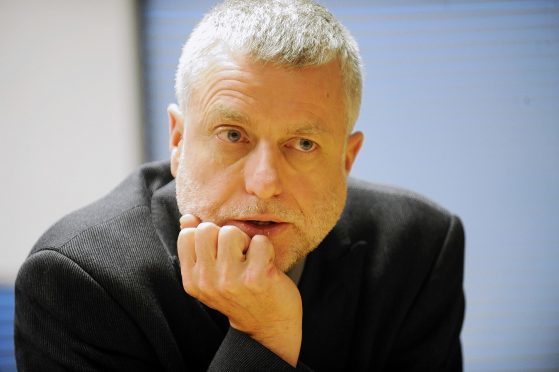A defiant architect of the controversial “named person” scheme in the Highlands has pledged it will continue despite a government U-turn.
Highland Council’s director of care and learning Bill Alexander insisted it had shown a “positive impact” on children’s welfare and been “totally embraced”.
But campaigners who successfully fought a legal challenge against data-sharing elements of the “totalitarian” national policy suggested he was in denial about the implications of the Supreme Court ruling.
Mr Alexander conceded that the information-sharing part of the project was now under review.
He claimed however that the overall concept has been good for children in the north and should go on.
Deputy First Minister John Swinney confirmed last week that parents would not be forced to accept advice from a so-called named person.
The volte-face followed a Supreme Court ruling that data-sharing elements of the scheme were “incompatible” with “the right to privacy and family life”.
Mr Swinney said the Children and Young People Bill for state guardians would no longer include mandatory information-sharing by the authorities about potentially vulnerable children.
Mr Alexander piloted the scheme, as part of a wider “Getting it right for every Child” policy which was created in 2010 to offer greater protection for vulnerable youngsters.
He is confident the dramatic u-turn would “bring clarity to the legislation – clarity for the nurse, the GP, the teacher and the social worker”.
Mr Alexander said: “The critical issue is that the previous version talked about a duty to share information. It’s now a duty to consider sharing information.
“What the legislation seeks to do is set out my responsibilities to manage the system and puts behind that guidance that teases that out in terms of what practice should look like on the ground, including looking ahead to the new data protection legislation. It won’t change anything.
“Getting it right for every Child works. It’s been totally embraced. Families are happy and it’s had a positive impact.
“It doesn’t mean that risk has gone or that the system is perfect. It does mean the system is working much better and that risk is reduced for many children.
“Materially, nothing has changed in any substantial way. We’ll reflect on the legislation and the guidance. We’ll reflect on our practice model guidance and if it needs to be improved on the basis of what’s in the legislation that will go in.”
He maintains that the work in Highland means many more vulnerable children get support and quicker.
The number of “looked after children” is down about 15% – from 501 in 2007 to 440 last year.
‘Child at risk’ numbers are down between 15% and 20% “because of early intervention,” Mr Alexander says.
The number of Highland children on the child protection register has dropped from 130 in 2007 to 104 in 2016 – although that is higher than a low over that period of 60 in 2008.
He said he had no regrets, although communicating the message could have been better handled.
Simon Calvert of the pressure group No To Named Persons (NO2NP) successfully fought the scheme in the UK Supreme Court, forcing significant changes to the scheme.
Speaking yesterday, he said: “Mr Alexander sounds as if he might need a named person himself to help him with his reading – reading the Supreme Court judgement, that is.
“The judges regarded his named person scheme as having the whiff of the totalitarian state about it. That’s hardly something to be proud of.
“As far as the beating heart of the Named Person scheme goes, the power to grab and share private information on families, that’s been ripped out thanks to the Supreme Court.
“In that respect, it’s as if the named person legislation was never passed.
“The Court also forced the government to make clear that the scheme is voluntary, though families are still not being given a clear statutory opt out in the new bill.”
He added: “Finding neglected or abused children is like finding a needle in a haystack and the named person scheme makes the haystack a lot bigger.”
